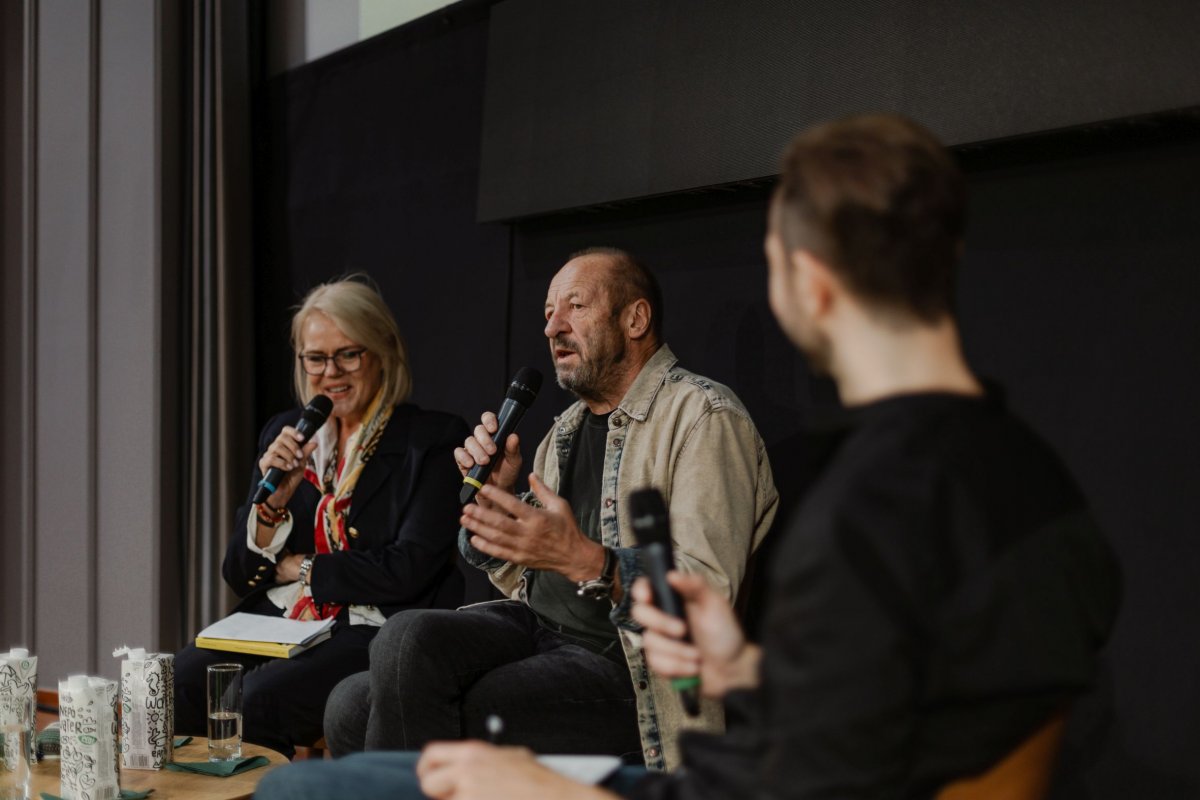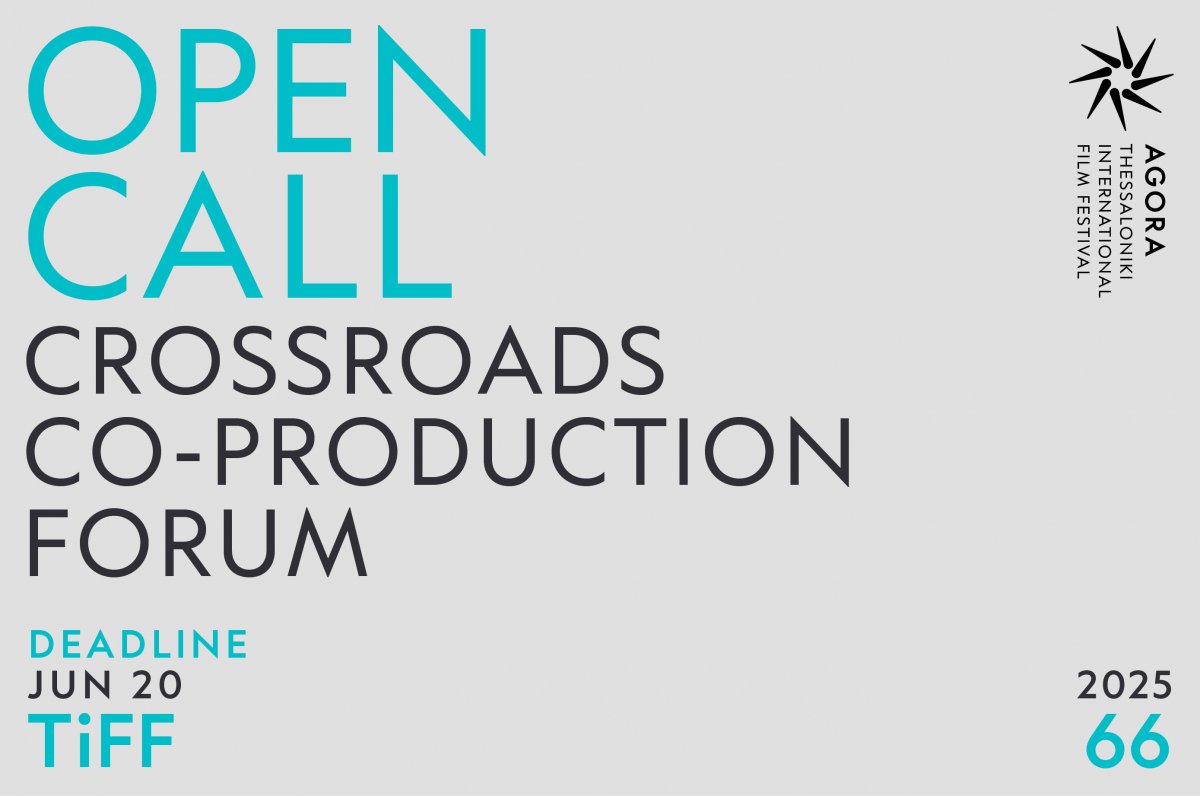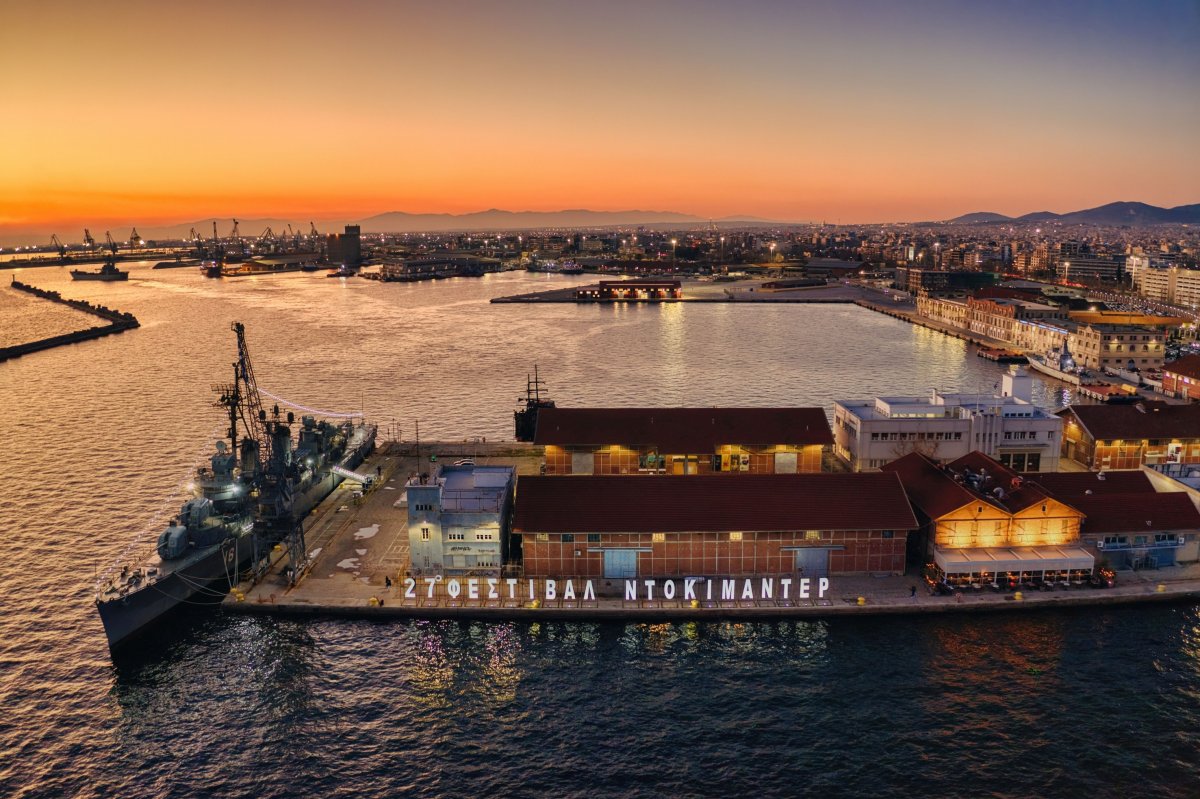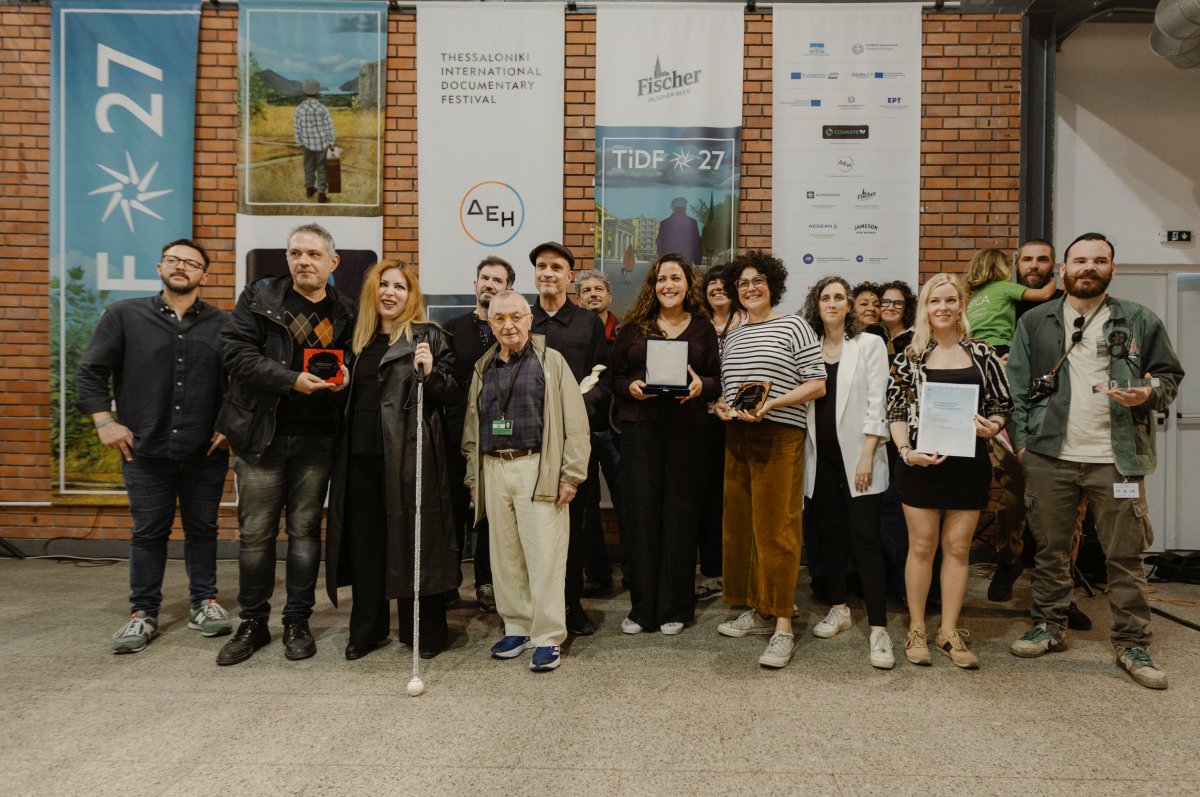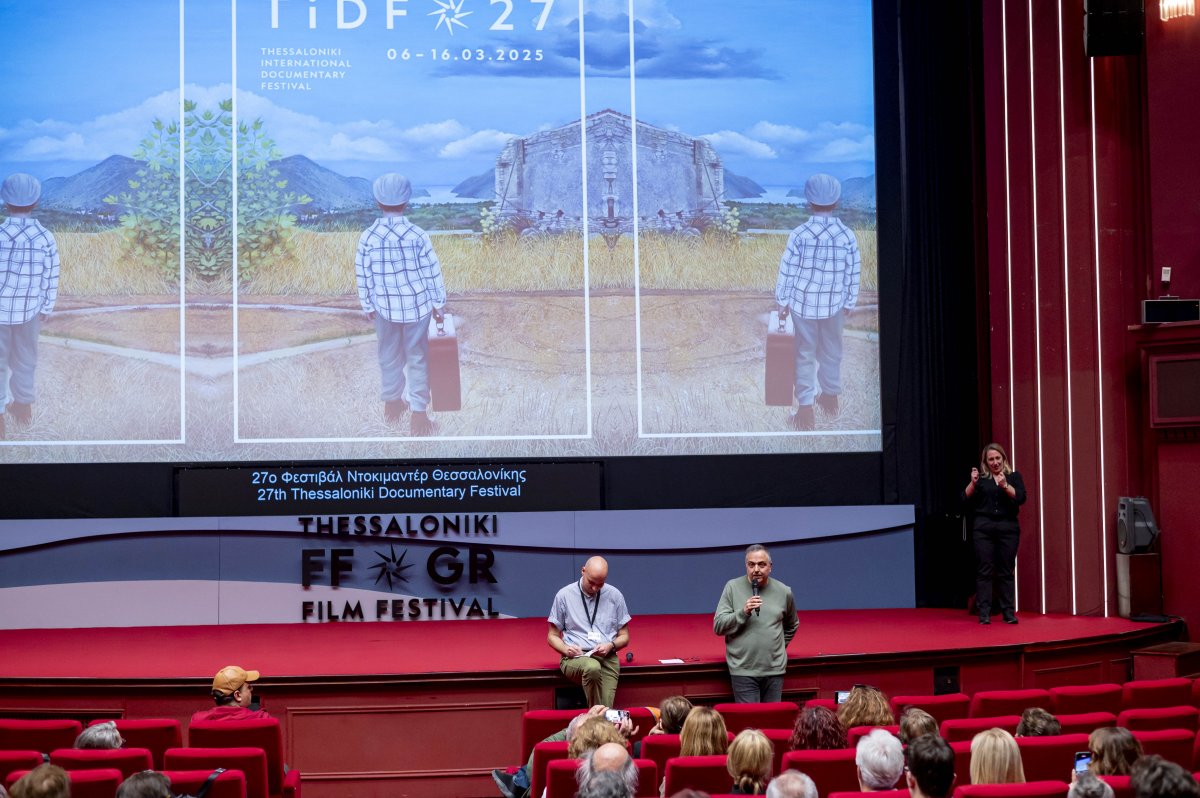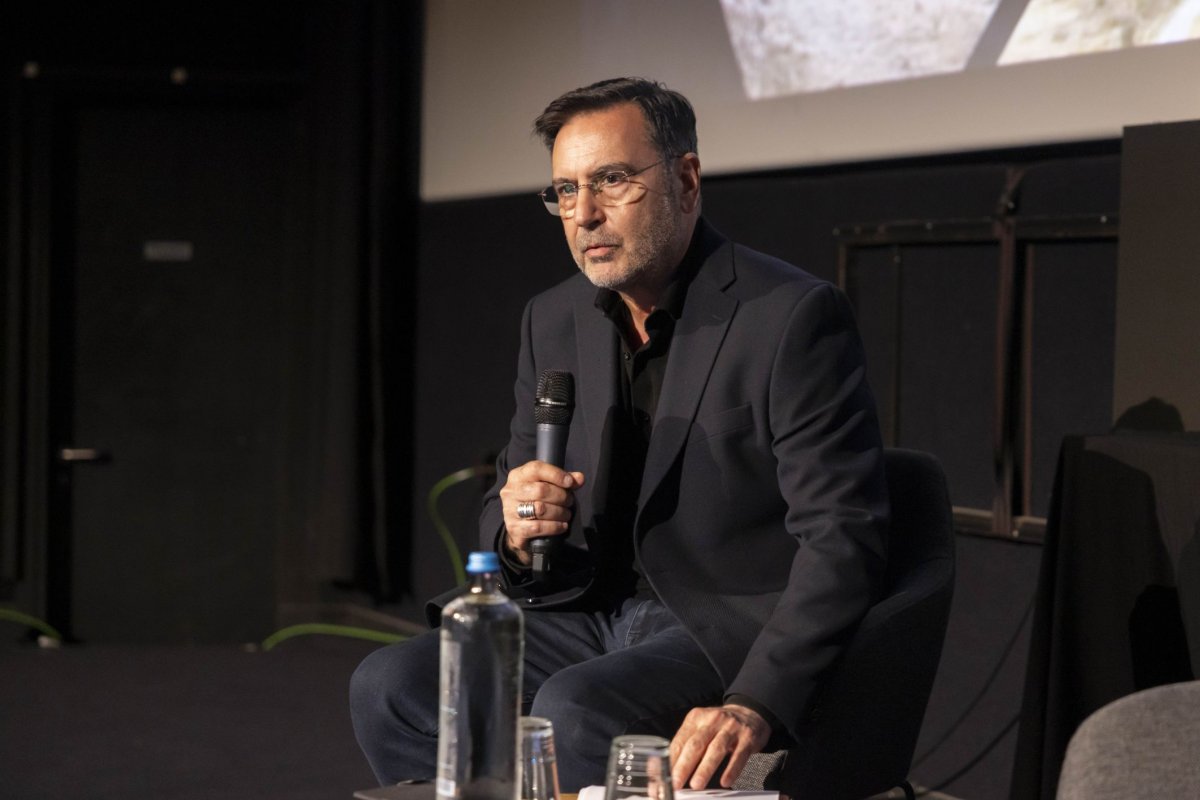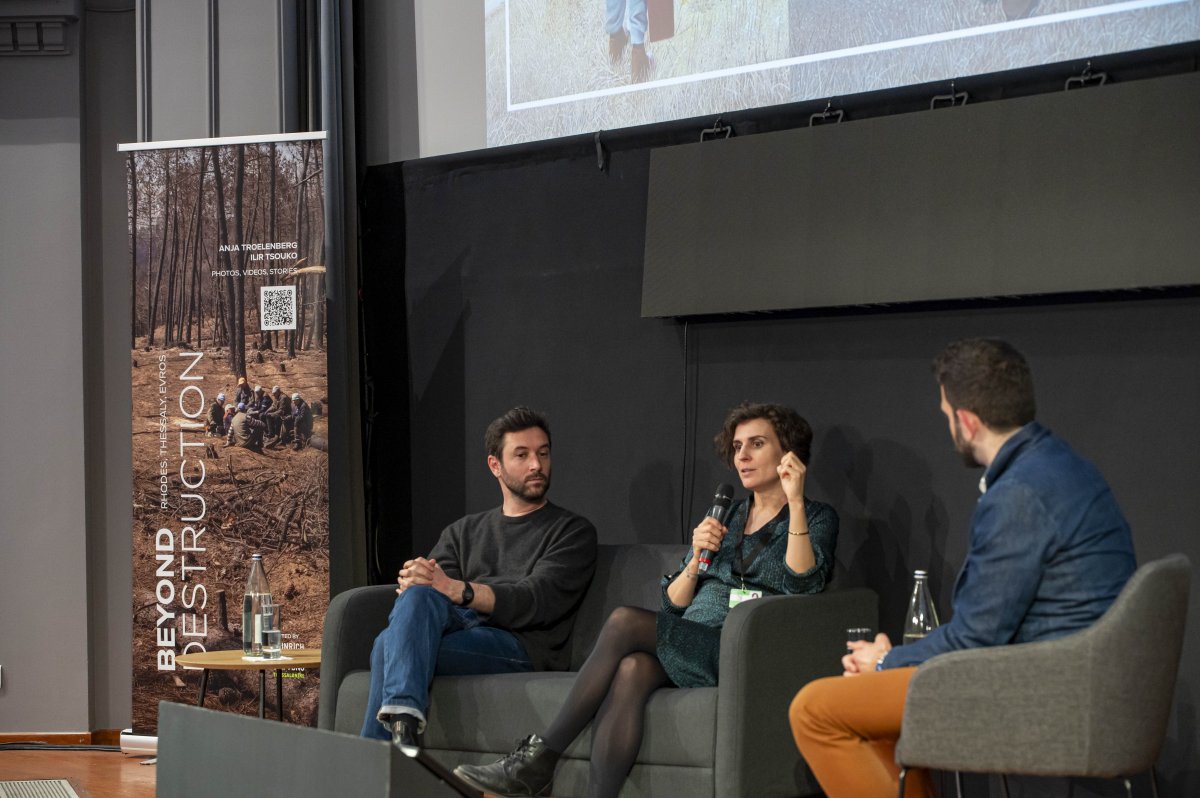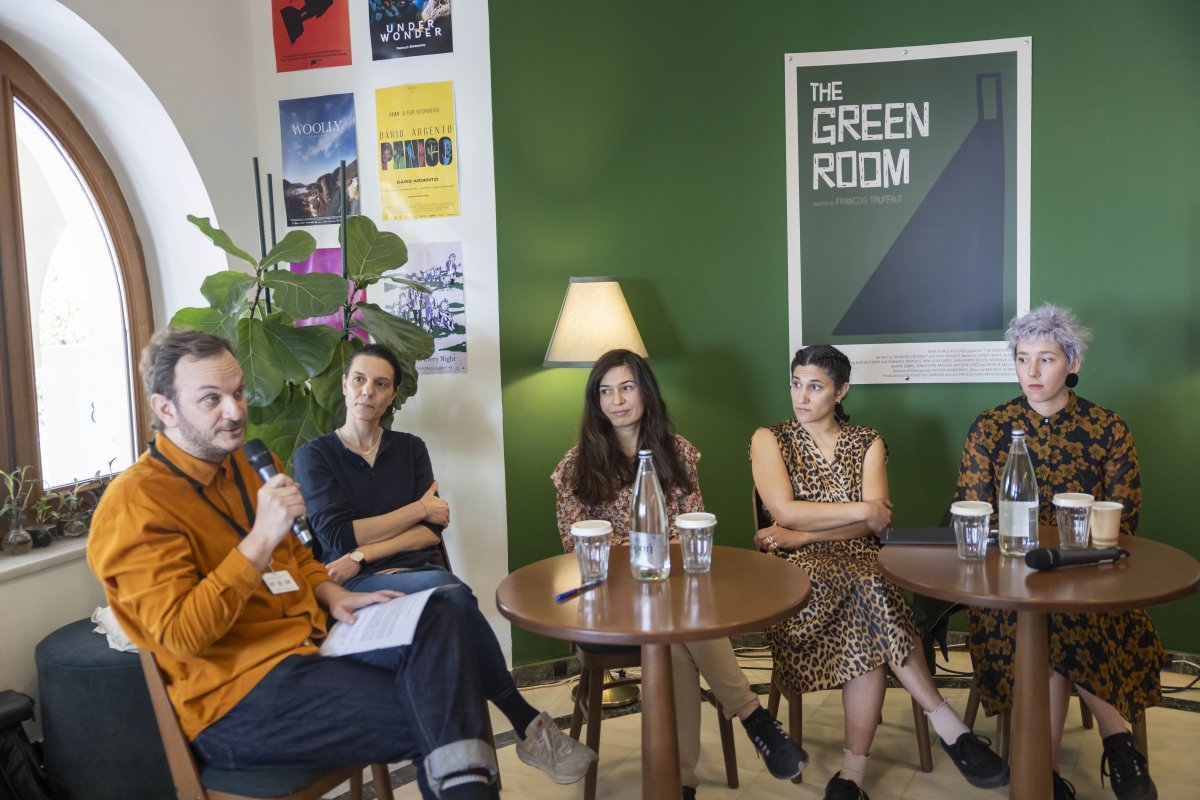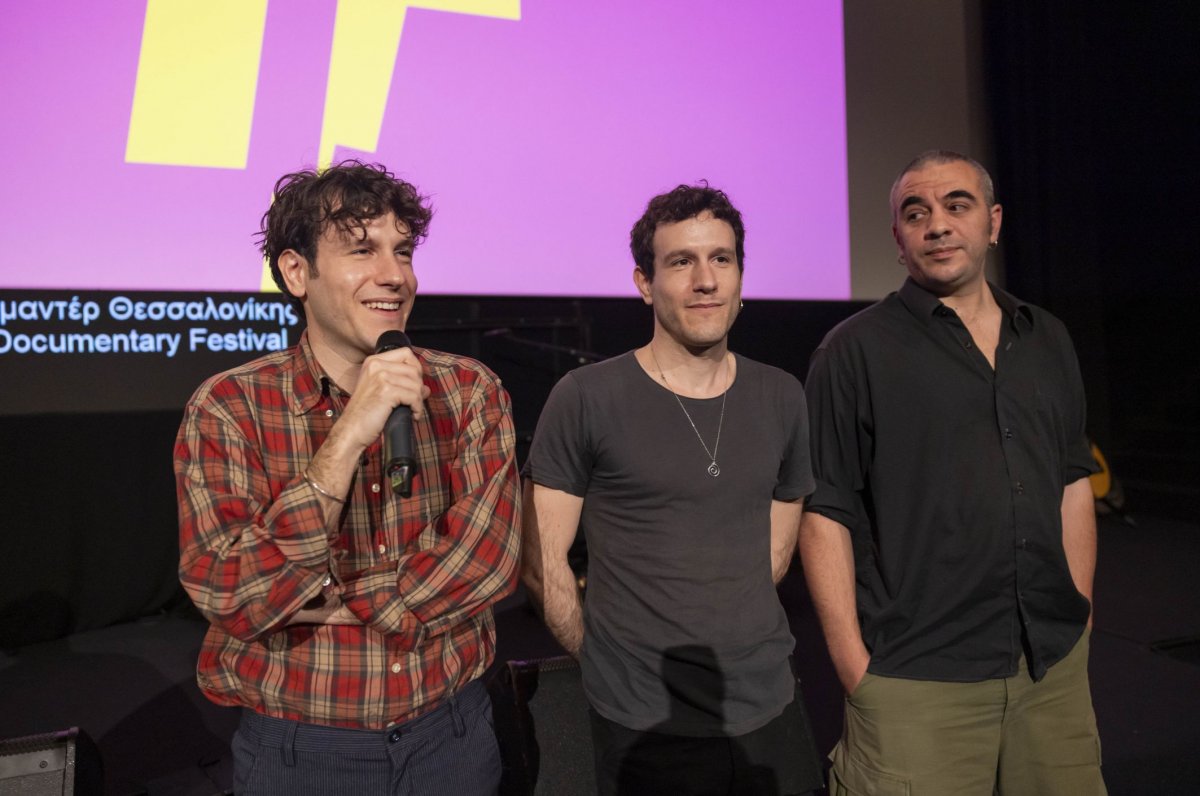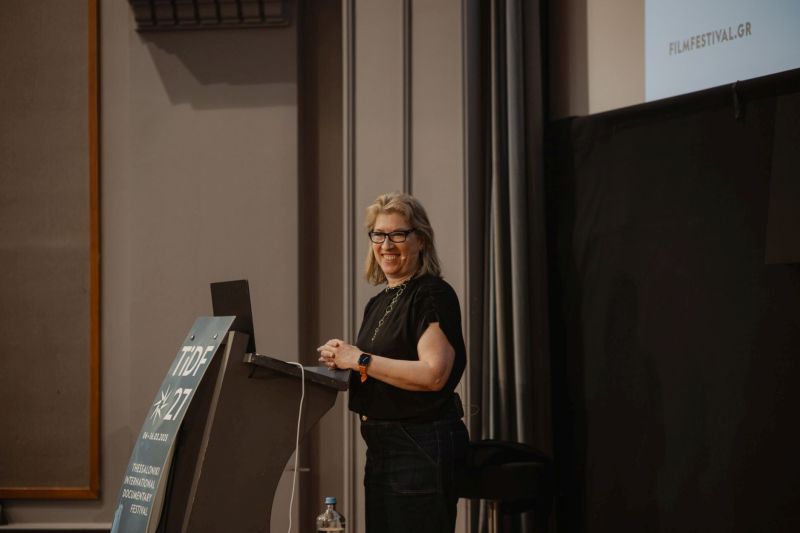On Monday morning, November 4th, at the packed Pavlos Zannas theater, film music aficionados had the opportunity to attend the masterclass "The Role of Film Music" delivered by the prolific Polish composer Zbigniew Preisner. The event took place within the framework of the Thessaloniki Film Festival’s Meet the Future action, which aims to bring forth the up-and-coming Greek professionals from different branches of the film industry. This year’s Meet the Future foregrounds the art of film scoring through the tribute “Music in Motion: The Art of Film Scoring”, welcoming film composers of the younger generation from Greece. Zbigniew Preisner discussed the role of music in film, the creative relationship between a composer and a filmmaker, but also the creative freedom that a composer can enjoy in a film production.
Theo Papadimitriou, Assistant Professor at the Film School of the Aristotle University of Thessaloniki, welcomed the audience: “It’s a great pleasure and honor to welcome Zbigniew Preisner. Before we start, I’d like to share something personal. When I was a young musician, I participated in various musical ensembles, and we dabbled in film music. I had documented some of Preisner’s compositions in their entirety, as access to sheet music was limited then, and thus, I learned them by heart. I had entire records written down by ear, and now, I find myself very moved to be speaking to him,” he initially stated, before kicking off the discussion with a question to the composer about the creative process involved in music composition.
“A film is like a person. We have hands, feet, legs, a head, all those parts that make up a body, and the same applies for a film. It is composed from many parts, one of which is music. When I watch a film, I listen to it and process how to create the soundtrack. Music is the one and only metaphysical aspect of a film. We don’t see it; we just hear and feel it. Of course, everything depends on the filmmaker. I have collaborated with numerous filmmakers who have an appreciation for the kind of music I compose, and try to cultivate; a music infused with this spirituality. Everything depends on the creative dialogue that a composer and a filmmaker engage in before they move on and make joint decisions. Unfortunately, as I understand and the way I see things going, no-one over there makes decisions that way in Hollywood these days, that’s why I have distanced myself a bit,” the renowned composer initially said.
Immediately afterwards, Preisner spoke about his acquaintance with Krzysztof Kieślowski, as well as the prominent role their enduring collaboration played in his career, while also referring to the Van den Budenmayer persona that he made up along with the unforgettable Polish filmmaker. “Kieślowski will most probably follow me my entire life. It’s an indisputable fact that during our nine years of working together, we collaborated on 17 films. To tell you the truth, between 1988 and 1995, I remember nothing else from my life, apart from composing music. I must tell you, Kieślowski was a very quick-witted guy. People always thought we were sad, but in reality, that wasn’t the case at all. I met him in 1984. He had sent me a telegram that read ‘can we meet up in Warsaw?’ And as such, we meet up, five minutes go by and nobody utters a word – meanwhile in one hour I had to take the return train to Krakow. Out of nowhere, Kieślowski asks: ‘What about a little shot of vodka?’ In Poland, when you order a drink, you also get something to nibble on. Half an hour later, the entire table was filled with all kinds of dishes,” Zbigniew Preisner initially expressed with regard to Krzysztof Kieślowski.
“Kieślowski asked me to be diligent, careful, and punctual. And we became a role model duo of punctuality. We each bought a clock from Zurich, and he called me almost every four hours to check if our clocks were in alignment.” As for the birth of the Van den Budenmayer persona, he explained: “I remember in the Dekalog, in the ninth episode, Kieślowski wanted to use a composition by Mahler. However, it proved difficult to find a quality recording of Mahler in Poland, and acquiring the royalties was out of the question in terms of price. The entire Dekalog didn’t cost us more than 300,000 dollars to give you a clue. So, I proposed to compose something of my own. We had already worked on a project together in the Netherlands, a documentary we shot there, and Van den Budenmayer came up, a name I had used once. There is a scene in the film where the female protagonist sits in her living room, listening to music, and when her husband wonders what she’s listening to, she replies ‘Budenmayer’. In reality, it is kind of an inside joke between the two of us. A couple of months later, faxes addressed to Kieślowski started swarming in, asking questions such as ‘how did you discover this Van den Budenmayer guy?’ An invitation even came through, to have his name included in the Larousse encyclopedia," added the great Polish composer.
“Times were such that a very active imagination was required. To give you an idea, I was watching the film in Warsaw and while traveling back to Krakow I had to memorize what I had just seen in the film so as to compose. There were no videos, DVDs or other helpful tools back then. You just had your memory and your imagination. It was an incredible process, almost otherworldly. Back then, we used pen and paper, not having the opportunity to listen to the music while writing it. Only when time came to listen to the instrumental version by the orchestra, did I have the chance to discover what I had composed; and the feeling was indescribable. When a good director and a good music composer team up, you can control everything,” Zbigniew Preisner explained, making a brief retrospection.
The Polish creator has composed music scores for films directed by numerous great filmmakers, including Terrence Malick (The Tree of Life, 2011), Thomas Vinterberg (It's All About Love, 2003) Agnieszka Holland (The Secret Garden, 1993). Referring to his collaborations with iconic filmmakers such as the ones aforementioned, he stated: “I could talk for hours or even days about these great masters, but to put it shortly, when you work with such renowned filmmakers, a desire to work engulfs you. Working lifts your spirits, you wish to invest musically in what they are crafting. Addressing all emerging musicians and composers, if there are any among us, I advise you to avoid using temp music just because the filmmakers are terrified of silence. Cinema is an art consisting of many elements, and one of those is music. Simply put, believe in what you are creating, there is no other path. Often, I have the impression that in the films currently being made, little is out-of-the-box. But sometimes, silence is the most beautiful music. Take Bergman's films, for example, where there is no music. I have a saying about my life, which I borrowed from a Polish poet. "Always swim against the current, and towards the source. Only garbage floats along the current. Even if you don't get there, at least you'll stretch your muscles.’ All my life, I've been trying to do exactly that. Stretch my muscles."
As for the method he follows and his approach to work, he revealed the following: “As I have already told you, every film has its music. So, when I watch the film, I feel its tempo, its rhythm. Filmmakers separate their work in sections and fragments, scene to scene, and they want the music to follow the same path. For example, music for most American films is abruptly cut off each time the scenery changes. I compose in a nightmarish way for the conductors. I keep in mind every sequence, like one continuous line, with music bridging the scenes, not the reverse. However, as I have already mentioned many filmmakers are fearful of employing this method.”
Then, the audience had the opportunity to address their questions to Zbigniew Preisner, who initially shared his views on the role of AI in music composition: “I have not particularly familiarized myself with all these new technologies yet, but at times I think it would be interesting to feed everything I’ve done into an AI and prompt it to create a 40-minute concerto for me. I’d like to hear the outcome; it would be interesting. However, there is a large difference. In my own work, I can do whatever I want to, but it’s an entirely different case assigning AI to go through every music score ever created in order for it to come up with a composition – I find it to be a true crime against music. We are living in an era defined by a technology that has surpassed us. It’s like trying to kick a ball without gravity, and having no clue where it could end up,” he distinctly stated.
As for his first steps in music, Zbigniew Preisner revealed: “I was born in a small city and thus, I didn’t attend a music school. In 1975, when I began my life as a university student, I randomly went to a cabaret in Krakow, and there, I realized that I wanted to make music. I didn’t even know the notes, or anything at all. So, in 1975, I knew nothing about music, and in 1977 I was composing music for the orchestra. It took me two years to learn.” When asked about his entire body of work, and whether a specific piece stands out for him more than the others, he made a deeply emotional special mention to Requiem for My Friend, as he has dedicated it to the memory of Krzysztof Kieślowski. “I composed Requiem four days after Kieślowski’s passing. It was my own personal goodbye to Krzysztof,” Zbigniew Preisner concluded, bidding farewell to the audience and the up-and-coming composers with an invaluable piece of advice: “Unseal your imagination. That’s the only thing you need.”


